We are delighted to present a selection of our newly published April 2015 titles from our core subjects of Anthropology, Educational Studies, Genocide Studies, History, Politics, Refugee & Migration Studies, and Theory & Methodology in Anthropology, along with a selection of our New in Paperback titles.
We are especially excited to announce the publication of WHAT IS EXISTENTIAL ANTHROPOLOGY? edited by Michael Jackson and Albert Piette
“This is a book whose time has come . . . Focusing on themes like contingency, the open-endedness of life projects, and the lived tension between emergent properties like security and freedom, existential anthropology attends to the human condition rather than just culture.” · Don Seeman, Emory University
———————————————————————————————————————————–
 WHAT IS EXISTENTIAL ANTHROPOLOGY?
WHAT IS EXISTENTIAL ANTHROPOLOGY?
Edited by Michael Jackson and Albert Piette
What is existential anthropology, and how would you define it? What has been gained by using existential perspectives in your fieldwork and writing? Editors Michael Jackson and Albert Piette each invited anthropologists on both sides of the Atlantic to address these questions and explore how various approaches to the human condition might be brought together on the levels of method and of theory. Both editors also bring their own perspective: while Jackson has drawn on phenomenology, deploying the concepts of intersubjectivity, lifeworld, experience, existential mobility, and event, Piette has drawn on Heidegger’s Dasein-analysis, and developed a phenomenographical method for the observation and description of human beings in their singularity and ever-changing situations.
 MULTIDIMENSIONAL CHANGE IN SUDAN (1989–2011)
MULTIDIMENSIONAL CHANGE IN SUDAN (1989–2011)
Reshaping Livelihoods, Conflicts and Identities
Edited by Barbara Casciarri, Munzoul A.M. Assal and François Ireton
Based on fieldwork largely collected during the CPA interim period by Sudanese and European researchers, this volume sheds light on the dynamics of change and the relationship between microscale and macroscale processes which took place in Sudan between the 1980s and the independence of South Sudan in 2011. Contributors’ various disciplinary approaches—socio-anthropological, geographical, political, historical, linguistic—focus on the general issue of “access to resources.” The book analyzes major transformations which affected Sudan in the framework of globalization, including land and urban issues; water management; “new” actors and “new conflicts”; and language, identity, and ideology.
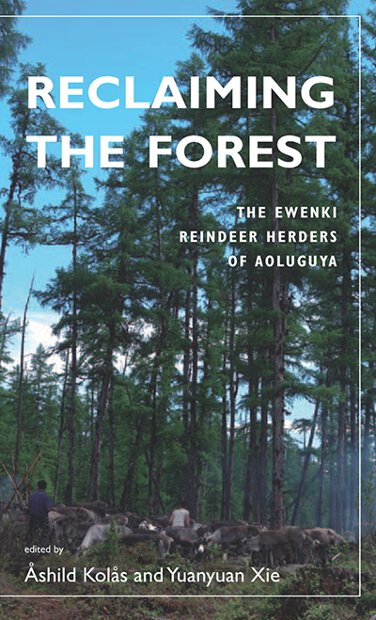 RECLAIMING THE FOREST
RECLAIMING THE FOREST
The Ewenki Reindeer Herders of Aoluguya
Edited by Åshild Kolås and Yuanyuan Xie
The reindeer herders of Aoluguya, China, are a group of former hunters who today see themselves as “keepers of reindeer” as they engage in ethnic tourism and exchange experiences with their Ewenki neighbors in Russian Siberia. Though to some their future seems problematic, this book focuses on the present, challenging the pessimistic outlook, reviewing current issues, and describing the efforts of the Ewenki to reclaim their forest lifestyle and develop new forest livelihoods. Both academic and literary contributions balance the volume written by authors who are either indigenous to the region or have carried out fieldwork among the Aoluguya Ewenki since the late 1990s.
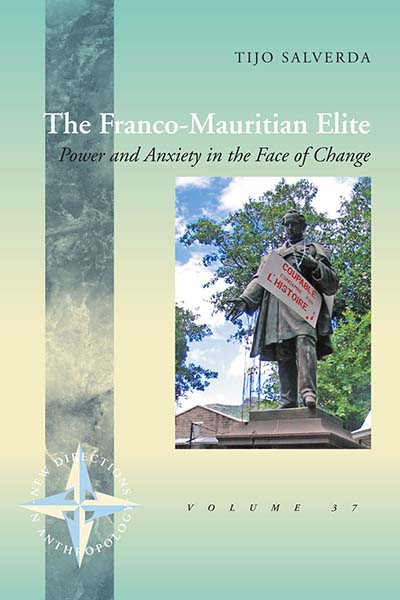 THE FRANCO-MAURITIAN ELITE
THE FRANCO-MAURITIAN ELITE
Power and Anxiety in the Face of Change
Tijo Salverda
Mauritian independence in 1968 marked the end of a regime favorable to the Franco-Mauritians, the island’s white colonial elite. Now, in postcolonial Mauritius, this group is faced with a much more diverse power constellation and often feels in competition with others vying for their privileges. Though this is a clear departure from the colonial heydays, Franco-Mauritians have been able to continue their elite position into the early twenty-first century. This book focuses on the power of white elites still lingering on in postcolonial realities, and with regards to elites and power in general, addresses anew how an elite group aims to prolong its position over time.
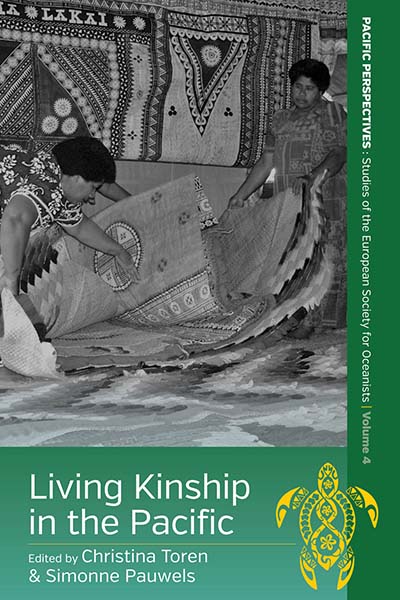 LIVING KINSHIP IN THE PACIFIC
LIVING KINSHIP IN THE PACIFIC
Edited by Christina Toren and Simonne Pauwels
Unaisi Nabobo-Baba observed that for the various peoples of the Pacific, kinship is generally understood as “knowledge that counts.” It is with this observation that this volume begins, and it continues with a straightforward objective to provide case studies of Pacific kinship. In doing so, contributors share an understanding of kinship as a lived and living dimension of contemporary human lives, in an area where deep historical links provide for close and useful comparison. The ethnographic focus is on transformation and continuity over time in Fiji, Tonga, and Samoa with the addition of three instructive cases from Tokelau, Papua New Guinea, and Taiwan. The book ends with an account of how kinship is constituted in day-to-day ritual and ritualized behavior.
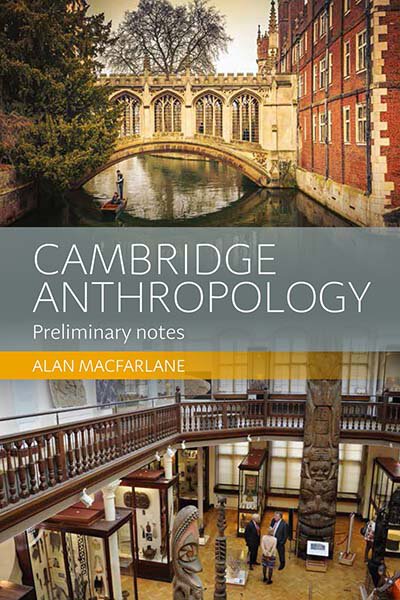 CAMBRIDGE ANTHROPOLOGY
CAMBRIDGE ANTHROPOLOGY
Preliminary Notes
Alan Macfarlane
There are very few inside accounts of academic departments, their history and ethnography. The Department of Social Anthropology at the University of Cambridge constitutes an appropriate case study to fill this gap. Having emerged from the work of figures such as Maine, Robertson Smith, Rivers and Haddon through to more recent international scholars such as Fortes, Leach, Goody, Gellner and Strathern, it is one of the oldest and most distinguished departments in the social sciences. It has trained many of the leading anthropologists working today, and many of its students are established in important positions around the world. It has added enormously to our understanding of the wider world through research in all continents and regions.
Based on thirty-five years of participant-observation fieldwork in the Department from 1975-2009, as Lecturer, Reader and Professor, Alan Macfarlane gives a brief history and reflects on life in the department, including the physical space, clothing, conversation, meetings and micro-politics. He also describes some of the changes over fifty years of post-colonial adaptation.
This small book is part of the celebration for the 100th anniversary of the founding of the Faculty of Archaeology and Anthropology held in Cambridge in February 2015.
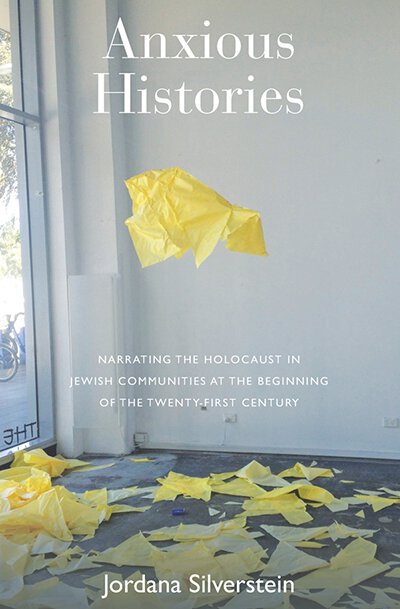 ANXIOUS HISTORIES
ANXIOUS HISTORIES
Narrating the Holocaust in Jewish Communities at the Beginning of the Twenty-First Century
Jordana Silverstein
Over the last seventy years, memories and narratives of the Holocaust have played a significant role in constructing Jewish communities. The author explores one field where these narratives are disseminated: Holocaust pedagogy in Jewish schools in Melbourne and New York. Bringing together a diverse range of critical approaches, including memory studies, gender studies, diaspora theory, and settler colonial studies, Anxious Histories complicates the stories being told about the Holocaust in these Jewish schools and their broader communities. It demonstrates that an anxious thread runs throughout these historical narratives, as the pedagogy negotiates feelings of simultaneous belonging and not-belonging in the West and in Zionism. In locating that anxiety, the possibilities and the limitations of narrating histories of the Holocaust are opened up once again for analysis, critique, discussion, and development.
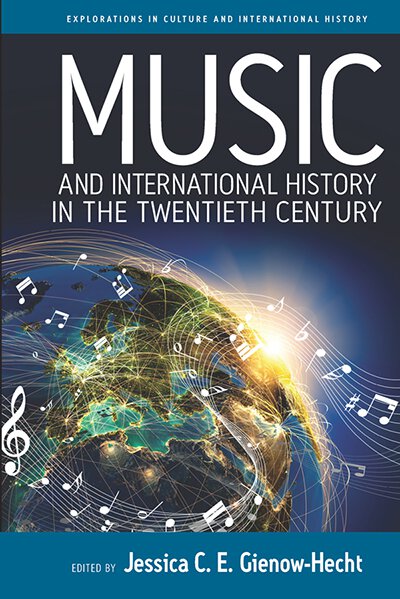 MUSIC AND INTERNATIONAL HISTORY IN THE TWENTIETH CENTURY
MUSIC AND INTERNATIONAL HISTORY IN THE TWENTIETH CENTURY
Edited by Jessica Gienow-Hecht
Bringing together scholars from the fields of musicology and international history, this book investigates the significance of music to foreign relations, and how it affected the interaction of nations since the late 19th century. For more than a century, both state and non-state actors have sought to employ sound and harmony to influence allies and enemies, resolve conflicts, and export their own culture around the world. This book asks how we can understand music as an instrument of power and influence, and how the cultural encounters fostered by music changes our ideas about international history.
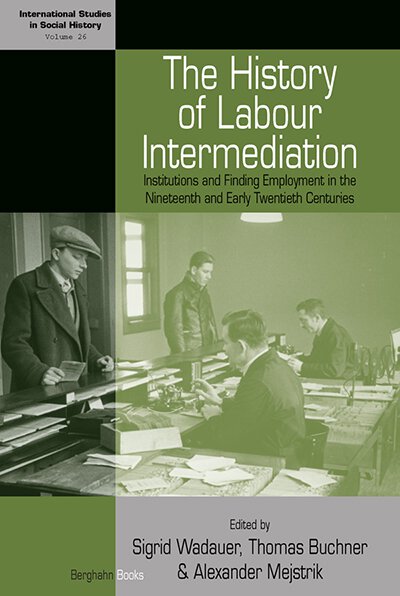 THE HISTORY OF LABOUR INTERMEDIATION
THE HISTORY OF LABOUR INTERMEDIATION
Institutions and Finding Employment in the Nineteenth and Early Twentieth Centuries
Edited by Sigrid Wadauer, Thomas Buchner, and Alexander Mejstrik
Searching for a job has been an everyday affair in both modern and past societies, and employment a concern for both individuals and institutions. The case studies in this volume investigate job search and placement practices in European countries, Australia, and India in the nineteenth and twentieth centuries. The contributors explore how looking for work becomes a means by which participants (individuals, placement agents, trade unions, municipalities, administrations, state authorities, and schools) articulated specific interests, perspectives, and agendas. Taking an exploratory approach, the chapters illustrate different approaches to the history of employment and job searching, ranging from organizational and regulatory histories to the analysis of practices and autobiographical accounts. In the process, they uncover the interrelations of search practices and attempts to arrange placement services.
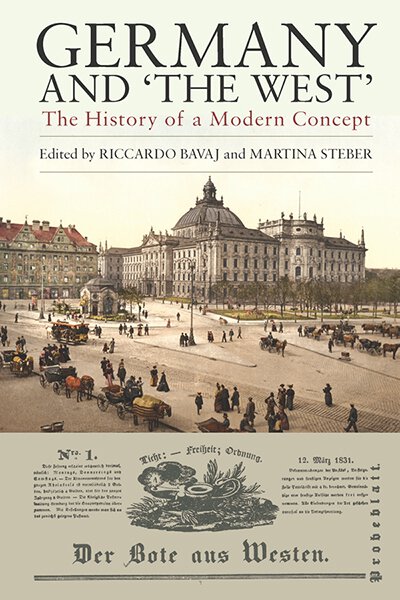 GERMANY AND ‘THE WEST’
GERMANY AND ‘THE WEST’
The History of a Modern Concept
Edited by Riccardo Bavaj and Martina Steber
“The West” is a central idea in German public discourse, yet historians know surprisingly little about the evolution of the concept. Contrary to common assumptions, this volume argues that the German concept of the West was not born in the twentieth century, but can be traced from a much earlier time. In the nineteenth century, “the West” became associated with notions of progress, liberty, civilization, and modernity. It signified the future through the opposition to antonyms such as “Russia” and “the East,” and was deployed as a tool for forging German identities. Examining the shifting meanings, political uses, and transnational circulations of the idea of “the West” sheds new light on German intellectual history from the post-Napoleonic era to the Cold War.
———————————————————————————————————————————–
New in Paperback!
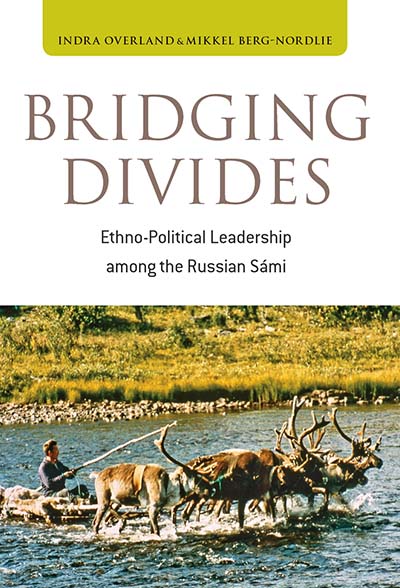 BRIDGING DIVIDES
BRIDGING DIVIDES
Ethno-Political Leadership among the Russian Sámi
Indra Overland and Mikkel Berg-Nordlie
For the Nordic Sámi, the last decades of the twentieth century saw their indigenous rights partially recognized, a cultural and linguistic revival, and the establishment of Sámi parliaments. The Russian Sámi, however, did not have the same opportunities and were isolated behind the closed border until the dissolution of the Soviet Union. This book examines the following two decades and the Russian Sámi’s attempt to achieve a linguistic revival, to mend the Cold War scars, and to establish their own independent ethno-political organizations.
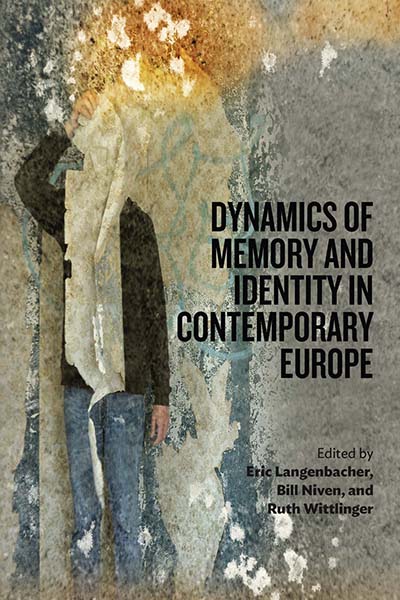 DYNAMICS OF MEMORY AND IDENTITY IN CONTEMPORARY EUROPE
DYNAMICS OF MEMORY AND IDENTITY IN CONTEMPORARY EUROPE
Edited by Eric Langenbacher, Bill Niven, and Ruth Wittlinger
The collapse of the Iron Curtain, the renationalization of eastern Europe, and the simultaneous eastward expansion of the European Union have all impacted the way the past is remembered in today’s eastern Europe. At the same time, in recent years, the Europeanization of Holocaust memory and a growing sense of the need to stage a more “self-critical” memory has significantly changed the way in which western Europe commemorates and memorializes the past. The increasing dissatisfaction among scholars with the blanket, undifferentiated use of the term “collective memory” is evolving in new directions. This volume brings the tension into focus while addressing the state of memory theory itself.
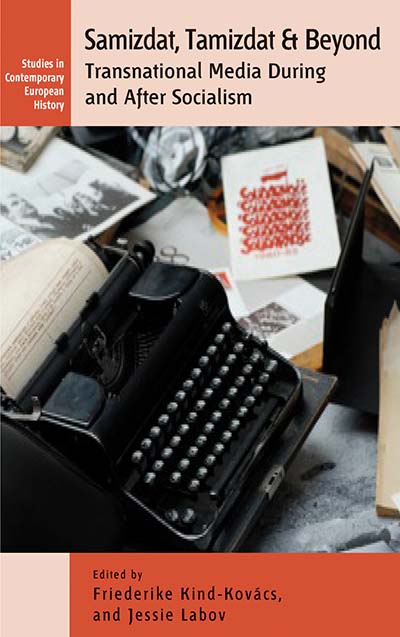 SAMIZDAT, TAMIZDAT, AND BEYOND
SAMIZDAT, TAMIZDAT, AND BEYOND
Transnational Media During and After Socialism
Edited by Friederike Kind-Kovács and Jessie Labov
In many ways what is identified today as “cultural globalization” in Eastern Europe has its roots in the Cold War phenomena of samizdat (“do-it-yourself” underground publishing) and tamizdat (publishing abroad). This volume offers a new understanding of how information flowed between East and West during the Cold War, as well as the much broader circulation of cultural products instigated and sustained by these practices. By expanding the definitions of samizdat and tamizdat from explicitly political print publications to include other forms and genres, this volume investigates the wider cultural sphere of alternative and semi-official texts, broadcast media, reproductions of visual art and music, and, in the post-1989 period, new media. The underground circulation of uncensored texts in the Cold War era serves as a useful foundation for comparison when looking at current examples of censorship, independent media, and the use of new media in countries like China, Iran, and the former Yugoslavia.
